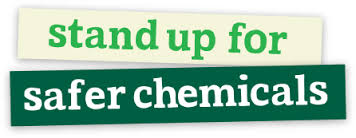
While occupational hygiene methods for controlling employee exposure to chemicals, such as isolation, enclosure, exhaust ventilation, process or equipment modification, impeccable keeping of a clean facility, enhanced administrative controls, and personal protective equipment are all fine and dandy, substituting a hazardous chemical cleaner for a safe cleaning solution is the preferred and optimal method for guaranteeing safety. While all of the recently mentioned methods reduce, in some manner, the risk of injury or harm by interrupting the path of exposure between the hazardous material and the worker, substitution utterly removes the hazard at the source.
Extreme care must be administered to ensure the current hazard is not exchanged for a new hazard, especially a new hazard that poses a more serious threat. Therefore, before deciding to replace your industrial company’s currently used chemical solvent, you must know if there are any risks involved with the chemical solution to the employees and the environment. If the newly posed risks are deemed as serious, then other alternative cleaning agents should be considered, and its risks must also be thoroughly understood.
The selection of a substitute chemical cleaner can become a complex process. For larger industrial businesses, the selection process for a new chemical cleaner may involve a committee, with representatives from several departments, including engineering, purchasing, research and development, environmental control, waste management, and shipping along with the supervisors and laborers who will work directly with the chemical agent. The following lists the considerations when determining the suitability of a substitute chemical cleaner:
Effectiveness – Can the new chemical cleaner satisfy the technical requirements, such as solubility and drying time, for the job or process?
Compatibility – The substitute chemical cleaner must not interfere or negatively react with the cleaning process, the other materials in use, or the equipment that facilitates the cleaning.
Existing Control Measures – Will the existing control methods adequately control the substitute chemical cleaner?
Waste Disposal – Will the new waste coming from the substitute chemical cleaner interfere with the current waste disposal system, or, in any way, adversely affect the technical and regulatory requirements when dealing with any and all created waste?
Hazard Assessment – A hazard assessment needs to be conducted to decide whether the substitute chemical cleaner in question can mesh with all cleaning operations with which it will participate.














